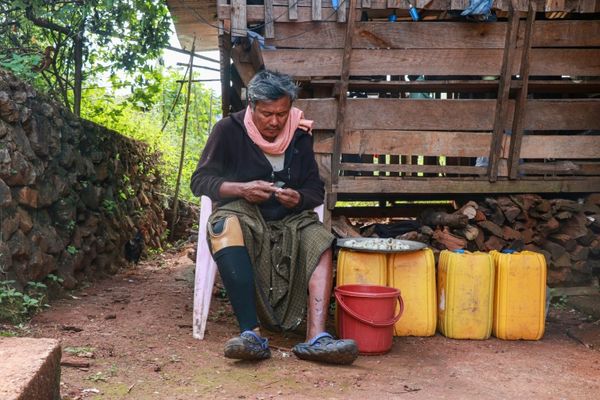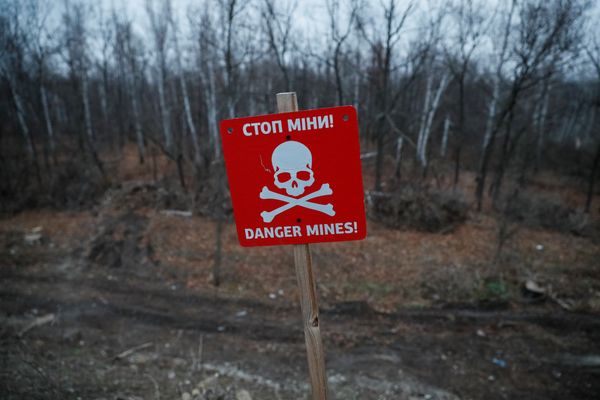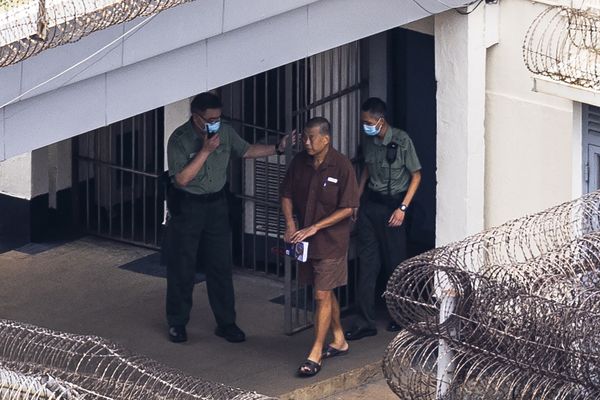
Some women and children have been evacuated from a steel plant in the besieged city of Mariupol after sheltering there for more than a week, as Russia continues missile strikes across southern and eastern Ukraine.
Moscow has turned its focus toward Ukraine’s south and east after failing to capture the capital Kyiv in a nine-week assault that has flattened cities, killed thousands of civilians and forced more than five million people to flee abroad.
Its forces have captured the town of Kherson in the south, giving them a foothold just 100 kilometres north of Russian-annexed Crimea, and have mostly occupied Mariupol, a strategic eastern port city on the Azov Sea.
Russia declared victory in Mariupol on April 21 even as hundreds of Ukrainian troops and civilians took shelter in the Azovstal steel works.
The United Nations has urged an evacuation deal, and on Saturday a Ukrainian fighter inside said some 20 women and children had made it out.
“We are getting civilians out of the rubble with ropes – it’s the elderly, women and children,” said the fighter, Sviatoslav Palamar.
He said Russia and Ukraine were respecting a local ceasefire.
There was no comment from Russia or the United Nations on the evacuations. Hundreds of Ukrainians remain inside, according to Ukrainian officials.
To the west in Odessa, which has so far been relatively unscathed in the war, a Russian missile launched from Crimea destroyed the runway at the main airport, Maksym Marchenko, Odessa’s regional governor, said.
Ukraine’s president Volodymyr Zelenskiy vowed in a late-night video address to rebuild the airport, saying: “Odessa will never forget Russia’s behaviour towards it.”
There was no comment on the strike from Moscow, whose forces have sporadically targeted Odessa, Ukraine’s third-largest city.
Eight people were killed in a Russian strike on the city last week, Ukrainian officials said.
Moscow’s assault in the south is aimed in part at linking the area with Crimea as it pushes for complete control over Ukraine’s eastern Donbas region.
Parts of Donbas’ two provinces, Luhansk and Donetsk, were already controlled by Russian-backed separatists before Moscow’s February 24 invasion.
In his address, Zelenskiy said Russia was “gathering additional forces for new attacks against our military in the east of the country” and “trying to increase pressure in the Donbas”.
Despite weeks of peace talks, both sides looked to be as far apart as ever on Saturday.
Russian Foreign Minister Sergei Lavrov said lifting Western sanctions on Moscow was part of the negotiations, but senior Ukrainian negotiator Mykhailo Podolyak denied this was the case.
Zelenskiy insists sanctions need to be strengthened and cannot be negotiated upon. He warned on Friday talks could collapse due to what he called Russia’s “playbook on murdering people”.
Ukraine accuses Russian troops of carrying out atrocities as they withdrew from areas near Kyiv in early April. Moscow denies the claims.
Negotiators last met face-to-face on March 29, and have since spoken by video link.
US President Joe Biden is seeking a $US33 billion ($A47 billion) aid package for Kyiv, including $US20 billion for weapons, while British Prime Minister Boris Johnson said on Saturday his country would continue “to give the Ukrainians the equipment they need to defend themselves”.
Lavrov said that if the NATO military alliance truly wanted to resolve the crisis, they should stop sending weapons to Kyiv.
Russia reported more Ukrainian strikes on its territory on Saturday.
Officials in Russia’s Bryansk region, which borders Ukraine and Belarus, said air defences had prevented a Ukrainian aircraft from entering. The resulting shelling had hit parts of a Russian oil terminal, they said.
South of Bryansk, in Russia’s Kursk region, several shells were fired from Ukraine toward a Russian checkpoint, Kursk Governor Roman Starovoit said. There were no casualties or damage, he added.
Ukraine has not directly claimed responsibility for a spate of such incidents on Russian territory.
But it described a series of blasts in Russia’s south on Wednesday as payback and “karma” for Moscow’s invasion.







